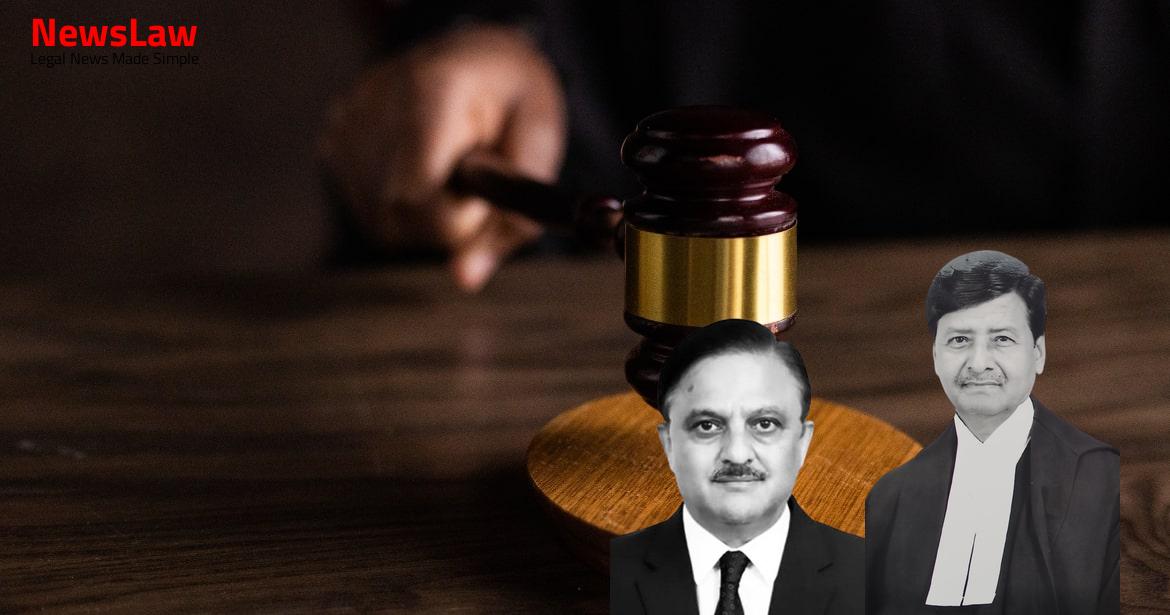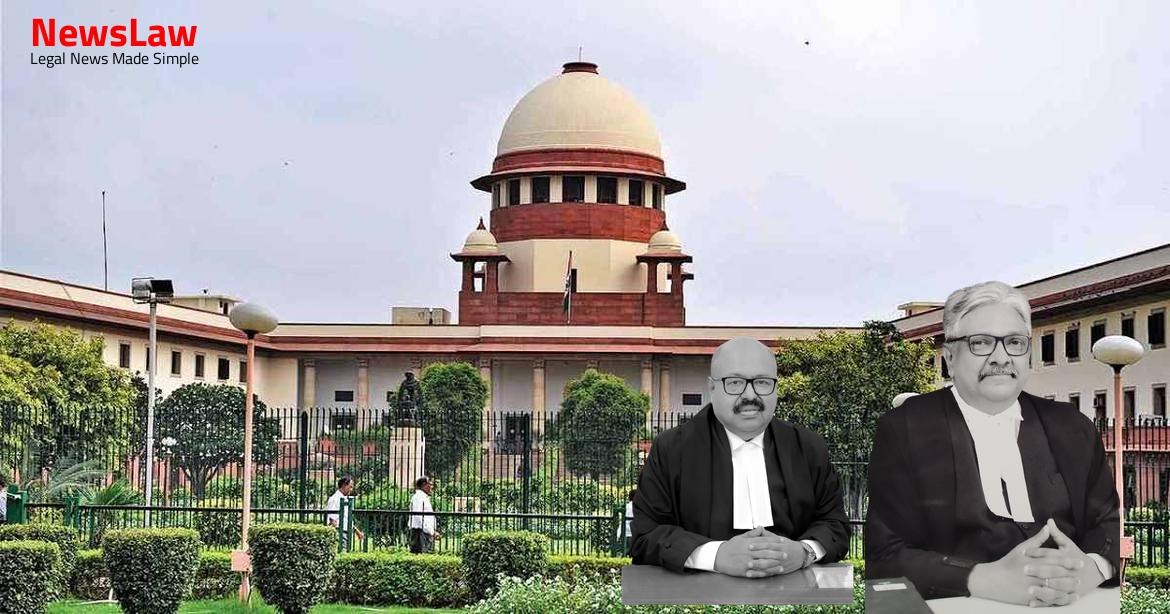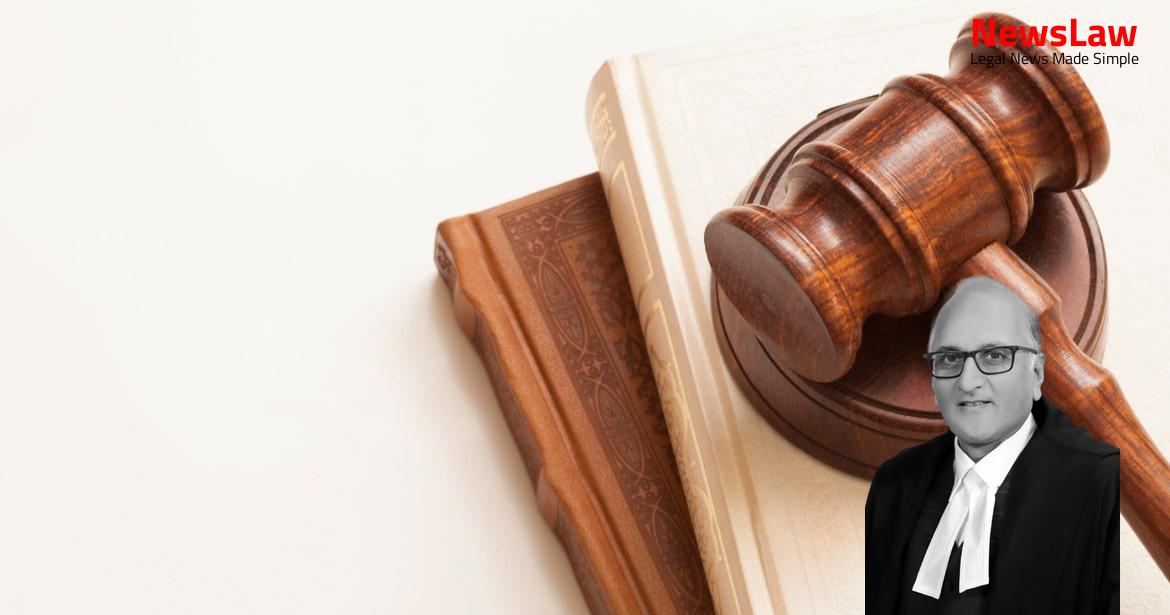Delve into a significant legal case where the court’s thorough legal analysis led to the dissolution of a marriage under Article 142 of the Constitution. The case highlights the complexities of matrimonial law and the criteria for divorce under the Hindu Marriage Act. Discover the implications of the court’s decision on grounds of desertion and cruelty, shaping future interpretations of family law.
Facts
- Matrimonial dispute between the appellant-husband and the respondent-wife based on alleged refusal to consummate the marriage.
- Appellant filed for divorce on grounds of cruelty and desertion in September 2011.
- Marriage solemnized on 17 June 2009 at Tezpur in Assam.
- Efforts made for amicable settlement including mediation, which eventually failed.
- Appeal against District Court decree dismissed by Gauhati High Court.
Also Read: Admission Deadline Adherence in Medical Courses
Arguments
- The petitioner’s counsel argued that the respondent’s visit to the matrimonial home on 21 December 2009 was only due to the appellant’s mother’s death, not for the purpose of cohabiting with the appellant.
- Reliance was placed on the case of Lachman Utamchand Kirpalani v. Meena @ Mota regarding the concept of desertion, which has been consistently followed by courts.
- It was contended that both courts erred in not finding desertion as a ground for divorce.
- The counsel urged invoking Article 142 of the Constitution for a divorce decree due to irretrievable breakdown of marriage.
- The appellant’s counsel highlighted that the marriage was unconsummated, causing mental cruelty to the appellant.
- It was mentioned that after 30 June 2009, the respondent showed no inclination to return to the matrimonial home, indicating no resumption of the matrimonial relationship.
- The respondent argued that the fact of desertion was not established by the appellant as determined by the District Court and High Court.
- She pointed to the respondent’s deposition in the District Court, emphasizing that there was no intention to desert the appellant.
- The appellant did not make any efforts to resume cohabitation.
- Citing the case of Darshan Gupta v. Radhika Gupta, the respondent stressed that living separately does not necessarily imply desertion on the wife’s part.
- As the grounds for divorce under Section 13 of the Hindu Marriage Act were not proven, the respondent urged against the dissolution of the marriage under Article 142 of the Constitution.
- The appellant’s counsel referenced the decision in Lachman Utamchand Kirpalani and argued for the dissolution of the marriage under Article 142 even if divorce grounds were not established.
- The respondent disputed the appellant’s claim of no consummation of marriage, citing the explanation to Section 13(1) regarding desertion.
- The respondent argued that evidence contradicted the appellant’s claims.
- The appellant’s counsel proposed dissolution of the marriage under Article 142 to alleviate the parties’ prolonged agony even if divorce grounds were not met.
Also Read: From Nominee to Disqualified: Supreme Court Scrutinizes Age Evidence, Declares Election Invalid
Analysis
- Desertion in marriage is defined as intentional abandonment without consent or reasonable cause.
- The respondent did not make efforts to resume the matrimonial relationship.
- The fact of separation in this case has been established.
- The respondent visited the matrimonial home briefly but did not intend to resume cohabitation.
- The desertion must be continuous for a period of at least two years as per the law.
- There was evidence suggesting animus deserendi on the part of the respondent.
- The appellant runs a business in Tezpur while the respondent is a lecturer at University Law College in Gauhati.
- Courts found no evidence to disturb findings on cruelty.
- Desertion ground under Section 13 of HM Act satisfied due to continuous period of more than two years before petition.
- Wife did not provide any reasonable cause for staying away from matrimonial home.
Decision
- The marriage between the parties solemnized in June 2009 is dissolved by a decree of divorce under Section 13(i)(b) of the Hindu Marriage Act, 1955.
- The Civil Appeal is partially allowed, directing the husband to deposit Rs.15,00,000 within 8 weeks.
- All pending applications are disposed of.
- The appellant had initially offered Rs.10,00,000 for settlement, but now needs to pay Rs.15,00,000.
- The impugned judgments are set aside.
- The respondent can withdraw the already deposited Rs.50,000 and Rs.15,00,000 after it is deposited.
- If amounts are not withdrawn within two months, the Court will give necessary directions.
- No costs are ordered to be paid.
Case Title: DEBANANDA TAMULI Vs. SMTI KAKUMONI KATAKY (2022 INSC 187)
Case Number: C.A. No.-001339-001339 / 2022



